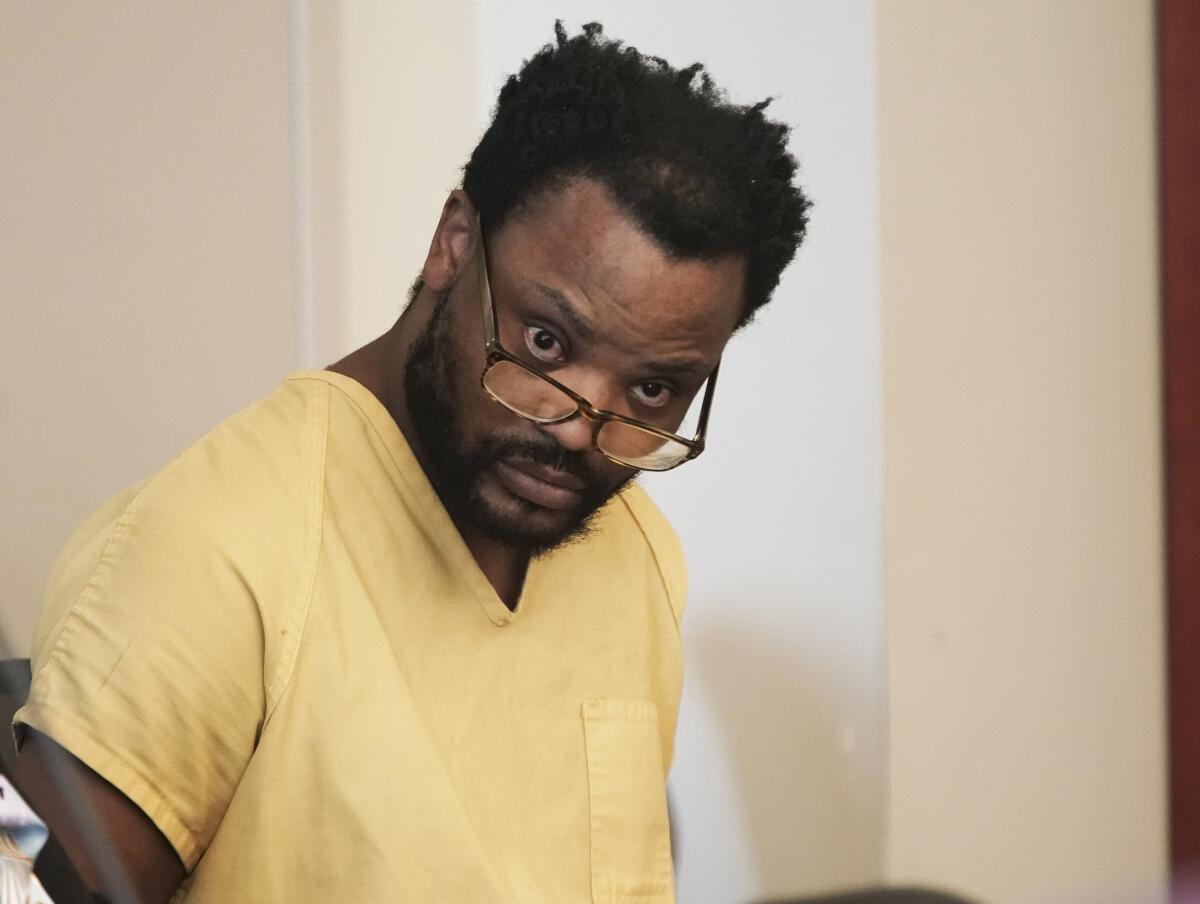Utah man pleads guilty in death of Mackenzie Lueck

- Share via
SALT LAKE CITY — A Utah man pleaded guilty Wednesday to strangling a college student from El Segundo whose disappearance over a year ago sparked a search that ended with the discovery of her charred remains in his backyard.
Ayoola A. Ajayi acknowledged he planned the death of 23-year-old Mackenzie Lueck, whom he met on a dating app and arranged to meet in a park. After they returned to his home, he bound and strangled her, then burned and hid her body while police and loved ones searched for her, his lawyer said in court.
Ajayi pleaded guilty to aggravated murder and desecration of a corpse in an agreement with prosecutors that removed the possibility of the death penalty. Prosecutors dropped charges of aggravated kidnapping and obstructing justice.
Ajayi also pleaded guilty to sexually abusing a different woman he met on a dating app. He is expected to be sentenced to life in prison without the possibility of parole.
Salt Lake County Dist. Atty. Sim Gill said the guilty pleas allow Lueck’s parents to begin to get closure and a “measure of justice.” Gill said the family has asked for privacy.
Lueck has been remembered as a bubbly, nurturing person who belonged to a sorority and was a part-time senior at the University of Utah studying kinesiology and pre-nursing.
The announcement by police that a Salt Lake City man was arrested on suspicion of killing University of Utah student Mackenzie Lueck has sparked grief from her sorority sisters in Utah as well as her family in California.
She went missing in June 2019, after returning from a trip home to El Segundo for her grandmother’s funeral.
Lueck had met Ajayi, 32, on the site Seeking Arrangement, which bills itself as a way for wealthy “sugar daddies” to meet women known as “sugar babies,” his lawyer said. She took a Lyft to meet him in a park, prosecutors have said. Her phone was turned off a minute after the last text and never turned back on.
Ajayi planned the slaying before the meeting at the park and turned off the video in his home-security system before he left to meet her, his lawyer Neal Hamilton said. When they returned to his Salt Lake City home, Ajayi tied her up and began to choke her. She tried to stop him, after which he put a belt around her neck, pushed her onto her stomach and strangled her, the attorney said.
Ajayi then burned her body and buried the remains in his backyard, Hamilton said. After detectives came to his door to question him, he dug her up and buried her in a shallow grave in a canyon nearly 100 miles north of Salt Lake City.
The search for Lueck went on for nearly two weeks before some of her remains were discovered in Ajayi’s backyard and he was arrested. He later revealed the location of her body in Logan Canyon, where she was found with her arms bound behind her.
A native of Nigeria, Ajayi held a green card that allows him to legally work and live in the U.S., prosecutors have said. He was an information technology worker who had stints with high-profile companies and was briefly in the Army National Guard.
Authorities have not discussed a motive for the killing.
Ajayi said little at Wednesday’s hearing and occasionally hung his head. He was wearing an orange jail jumpsuit, glasses and a blue surgical mask. He is expected to be formally sentenced Oct. 23.
Ajayi also pleaded guilty to sexually abusing another woman he met on a dating app in 2018. They went to his house for dinner, and the abuse happened while they were watching television, he acknowledged. He pleaded guilty to forcible sexual abuse in that case.
As part of the plea agreement, prosecutors dismissed 19 counts of sexual exploitation of a minor related to child pornography allegedly discovered on his devices during the investigation into Lueck’s death.
More to Read
Sign up for Essential California
The most important California stories and recommendations in your inbox every morning.
You may occasionally receive promotional content from the Los Angeles Times.













